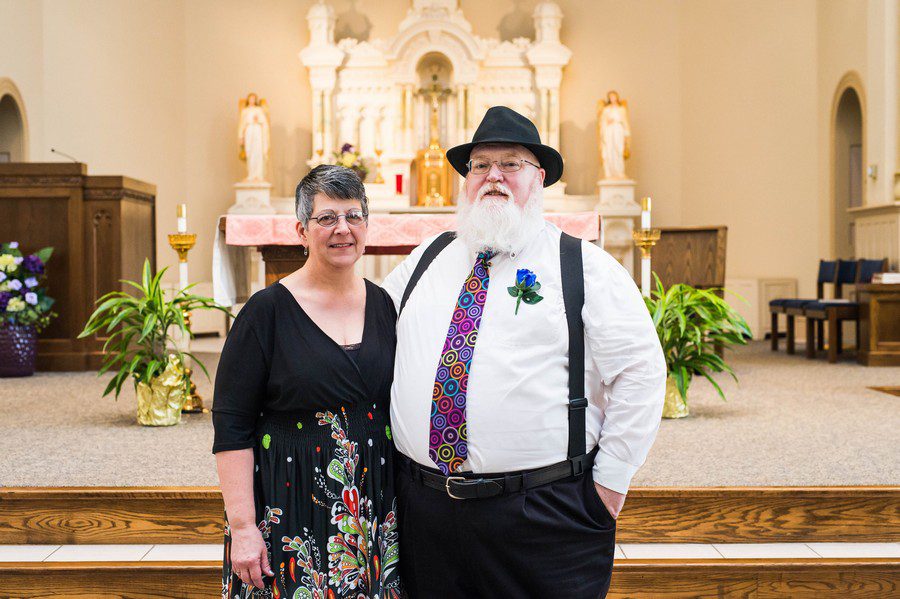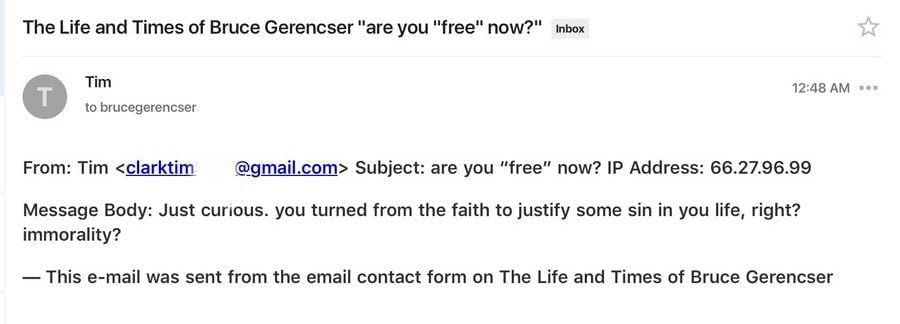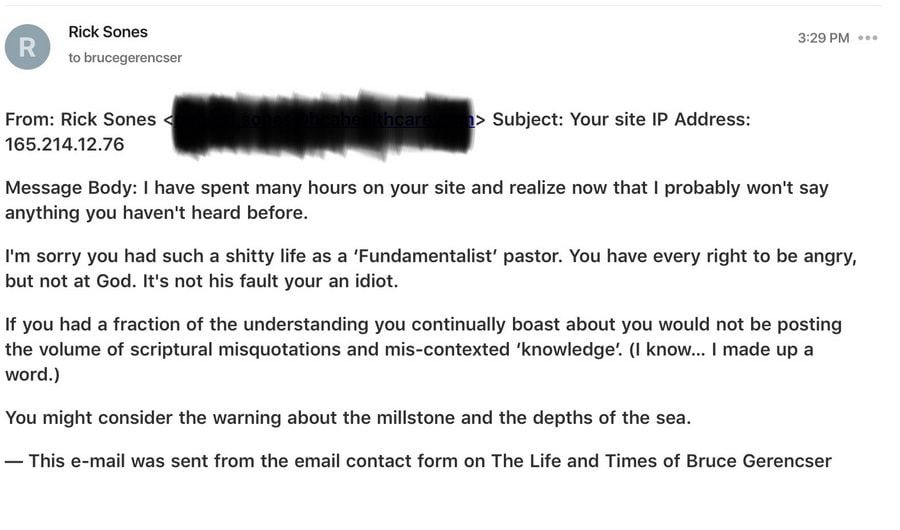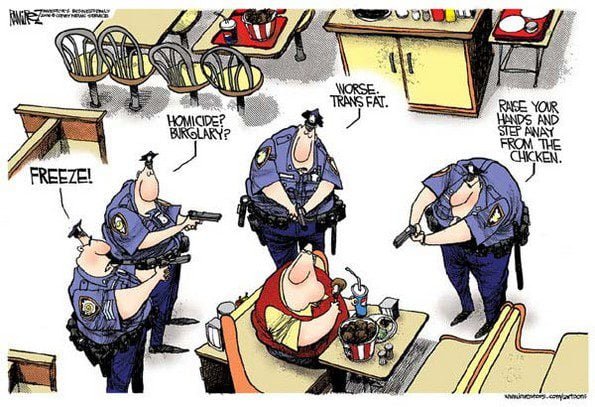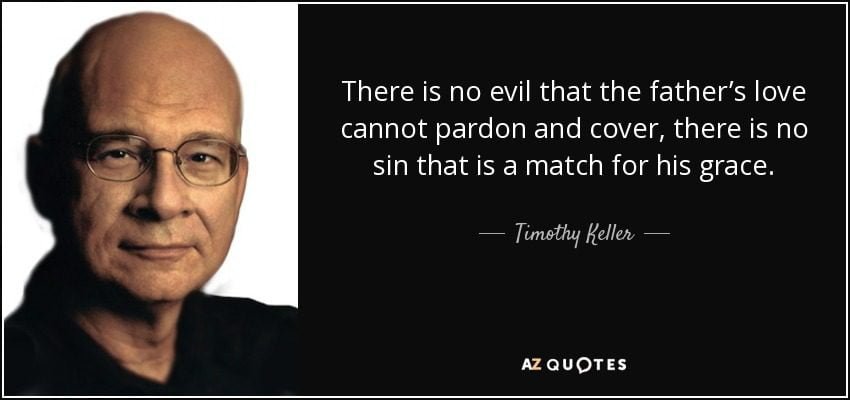
Kristie Noem, governor of South Dakota, shot her fourteenth-month-old dog Cricket for being a bad pheasant hunter and a good chicken hunter. Noem could have given Cricket to someone else or taken her to a shelter. Instead, Noem took Cricket to a gravel pit and shot her. Noem later shot her goat. His biggest offense was that he smelled and chased her children. Noem dragged the goat to the pit, tied him to a post, and shot him. Unfortunately, the goat moved, requiring Noem to fire again.
Kevin Roberts, the mastermind behind Project 2025, killed his neighbor’s dog with a shovel. The dog’s capital crime? He barked too much.
My partner, Polly’s late uncle was the pastor of the Newark Baptist Temple — an Independent Fundamentalist Baptist (IFB) congregation in Heath, Ohio. He was also an avid hunter. One day, while he and his dogs were out hunting, one of them took off after deer, returning hours later. His punishment for running off? Polly’s uncle shot him in the head. Again, the dog could have been given to someone else or taken to a shelter, but Polly’s uncle deemed the dog irredeemable and killed him.
One Baptist preacher told me that when he went hunting, he shot every cat he came upon. If he saw a cat along the berm of the road, he swerved at them, hoping to end their nine lives underneath the tire of his pickup truck. Why? Why such violent, indifferent behavior?
Years ago, we attended a Bible church in Butler, Indiana. One Sunday, a farmer told the adult Sunday school class about some kittens he had. He didn’t want them, so he killed each kitten by hitting them in the head with a hammer.
The one thing all of these animal killers have in common is that all of them are devout Christians. One of them is a conservative Roman Catholic, the other four are Evangelical Christians.
It has been said you can tell a lot about a person by how he or she treats animals. What do these stories tell us about these people?
Perhaps the bigger question is, why did these people indiscriminately kill innocent animals? They could have done differently, but they chose to use violence instead. Why?
Genesis 1:26 says:
And God said, Let us make man in our image, after our likeness: and let them have dominion over the fish of the sea, and over the fowl of the air, and over the cattle, and over all the earth, and over every creeping thing that creepeth upon the earth.
According to this verse, God gave humankind dominion (rule) over animals; domination over; control over. Many Evangelicals believe that God has given them the absolute right to do what they want with animals, be they wild or domestic. In their minds, if you have dominion over animals, their lives are in your hands. You have every right to kill them, eat them, or use them any way you want.
For many Evangelicals, animals are property, meant to be used in any way they wish. This leads to behavior that many people, believers and unbelievers alike, think is indifferent violence — killing because they can. When animals no longer provide value, they are often killed. Can’t have an old boar or heifer taking up space, right? If the boar can no longer impregnate sows or the heifer can no longer produce milk, it’s time to kill them.
Let me be clear, some Evangelicals are animal lovers, much like my partner and I. We value the life of all creatures. We find the aforementioned animal abuse stories to be morally offensive. None of these animals had to die, but because their owners were dominionists, they were killed.
Of course, God provided a good example to Christians in Genesis 1-3. After Adam and Even sinned, they made clothes for themselves to cover up their nakedness. That wasn’t good enough for God. God killed several animals to provide Adam and Eve with animal skin clothing. Why? (And please don’t read substitutionary atonement back into the text.)
God also provided an example to Christians in Genesis 6-9. God had Noah gather up two of every kind of animal on a big boat. Due to humanity’s wickedness, God flooded the entire earth, killing countless innocent animals who were unable to find protection on the Ark. Why did God do this? Because he could. So it is for many Evangelical Christians. They kill animals in their care because they can.
We also see God’s view of animals in the blood sacrifice system of the Old Testament. Animals of all sorts were killed to provide blood atonement for sin. God could have done otherwise, but he didn’t. Being the Bible believers that they are, is it surprising that so many Evangelicals are what many of us call animal abusers?
Bruce Gerencser, 68, lives in rural Northwest Ohio with his wife of 47 years. He and his wife have six grown children and sixteen grandchildren. Bruce pastored Evangelical churches for twenty-five years in Ohio, Texas, and Michigan. Bruce left the ministry in 2005, and in 2008 he left Christianity. Bruce is now a humanist and an atheist.
Your comments are welcome and appreciated. All first-time comments are moderated. Please read the commenting rules before commenting.
You can email Bruce via the Contact Form.


